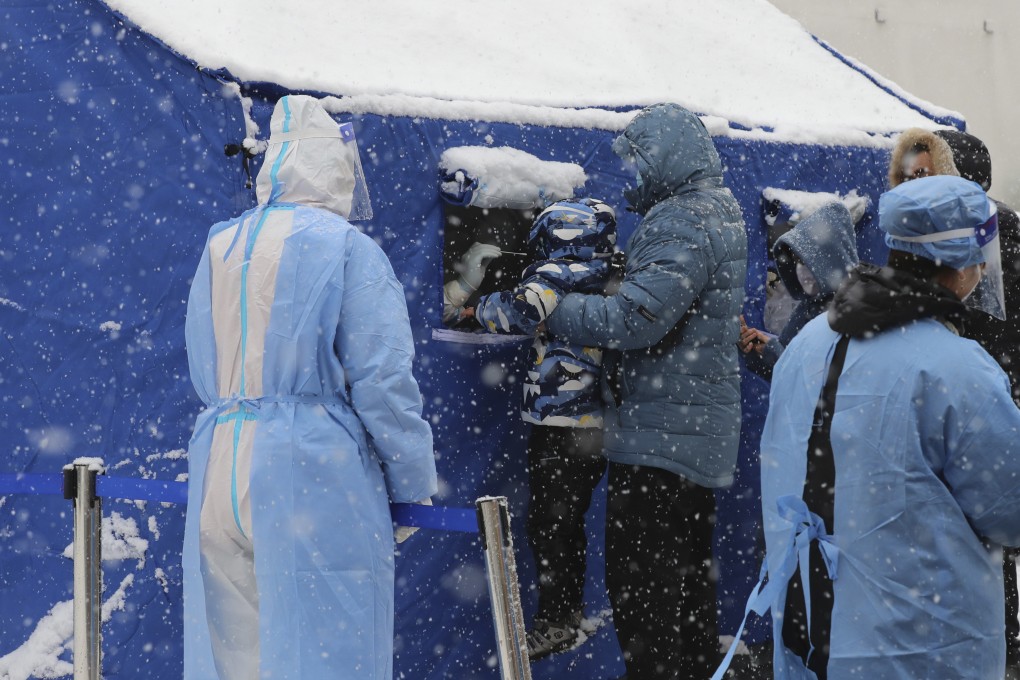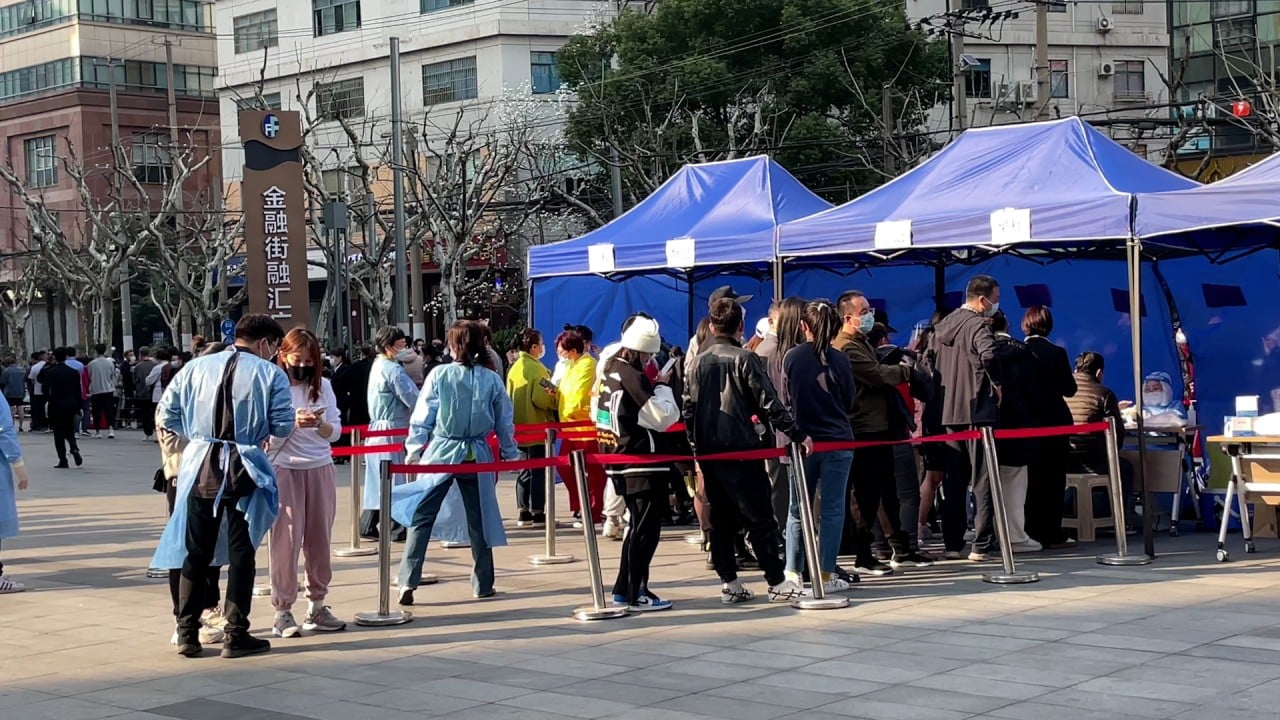Green light for 12 Covid-19 rapid antigen tests as China races to beat Omicron variant fuelling worst outbreak since 2020
- National health official says rapid tests should play a complementary role to definitive nucleic acid diagnosis
- Relying only on nucleic acid tests not ‘realistic’ for vast country, HKU virologist says

Li Jinming, deputy director of the NHC’s Clinical Testing Centre, said nucleic acid tests remained the main means of identifying Covid-19 infections, but RATs should play a complementary role.
Li said such tests were mostly for three types of people: those who still had symptoms five days after onset but tested negative on nucleic acid tests; travellers or close contacts in quarantine; as well as those who tested negative on nucleic acid tests but found it “necessary” to test again.
Antigen tests may produce false positive results, he cautioned, saying they could not be used as definitive diagnosis.
RATs pick up the protein of the virus without amplification and are therefore believed to be less accurate than nucleic acid tests. China had shunned the tests in the two years since the pandemic first broke out, although they were widely deployed in the West. This is the first time RATs have been made commercially available in China.

